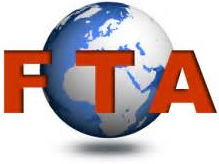
KIEV, Aug. 1 (Xinhua) -- The Canada-Ukraine Free Trade Agreement (CUFTA) came into force on Tuesday with expectations that it will boost bilateral trade as well as increase investment and create new jobs in Ukraine.
The CUFTA immediately eliminates tariffs on 98 percent of Ukraine's exports. The east European country's export-oriented sectors such as agriculture, chemical, metallurgy and machine-building industries are expected to benefit most.
"It will allow Ukraine to increase the supplies of the traditional category of goods consisting of non-precious metals, parts for vehicles, machinery and equipment. Agricultural exports have a potential to increase sharply," said Vadim Iosuba, a senior expert at the think tank Alpari.
Last year, the bilateral trade between Ukraine and Canada reached 246.3 million U.S. dollars, with Ukrainian exports accounting for about 12 percent.
The Ukrainian Economic Development and Trade Ministry forecast that the free trade regime will allow Ukraine to increase its exports to Canada by tenfold within the next five years.
Under the CUFTA, Ukraine immediately cancels the duties on 72 percent of Canadian imports, mainly fish and seafood, iron and steel, textiles, cosmetics and electronic products.
The share of duty-free Canadian exports to Ukraine will rise to 98 percent within seven years.
Canada is expected to benefit more than having market access to Ukraine from the free trade regime.
Canadian producers see Ukraine as a site for establishing manufacturing ventures to produce goods for the European Union that has a free trade deal with Kiev.
"Ukraine, not only for Canada, but also for other states, is potentially a good trade and production link for working in the European market. This is our most important advantage," said Andriy Novak, chairman of Ukraine's Economists Committee.
For Ukraine, such cooperation will attract investment from Canada and creates jobs.
The Ukrainian government has estimated the CUFTA implementation will create about 3,000 new jobs in Ukraine within the next five years.
Among the challenges facing Ukraine and Canada in an effective implementation of the free trade agreement, experts have named the far distance between the two countries which increases logistics difficulties, as well as the differences in the economic size and the development level.
There is no doubt that Ukraine has to raise the quality of its goods and improve the investment environment in order to fully exploit the opportunities the CUFTA offers.
If Kiev achieves this, it may gain access to other markets which have close economic links with Canada, according to experts.
"For instance, CUFTA could be a first step towards signing a similar free trade agreement with the United States given the fact that Canada and the U.S. have an economic and trade union," said Volodymyr Lanovyi, Ukraine's former economic minister.




 A single purchase
A single purchase









